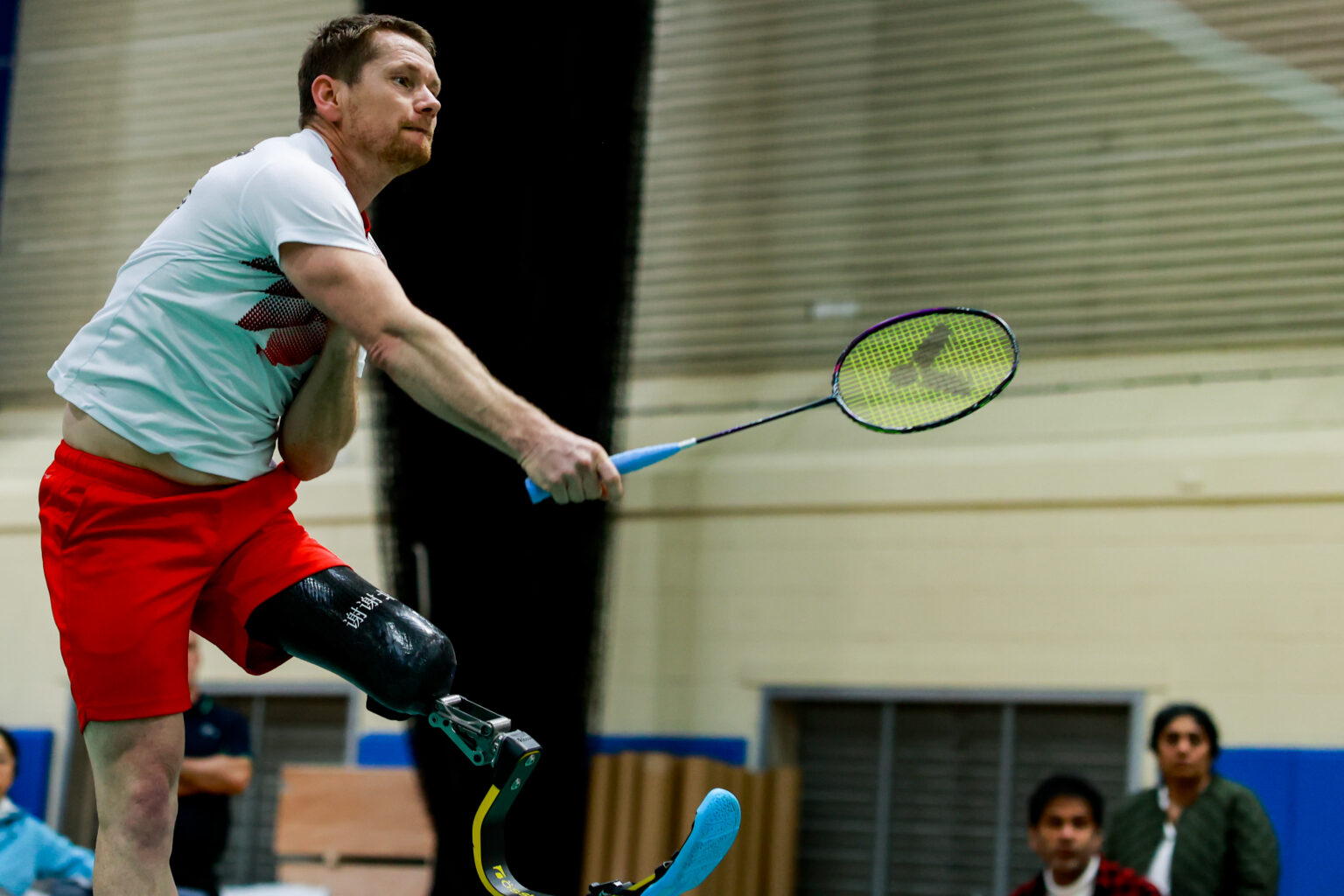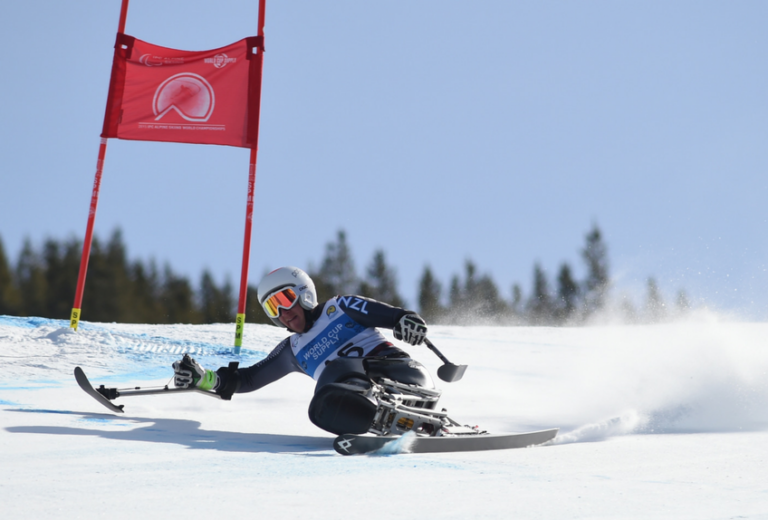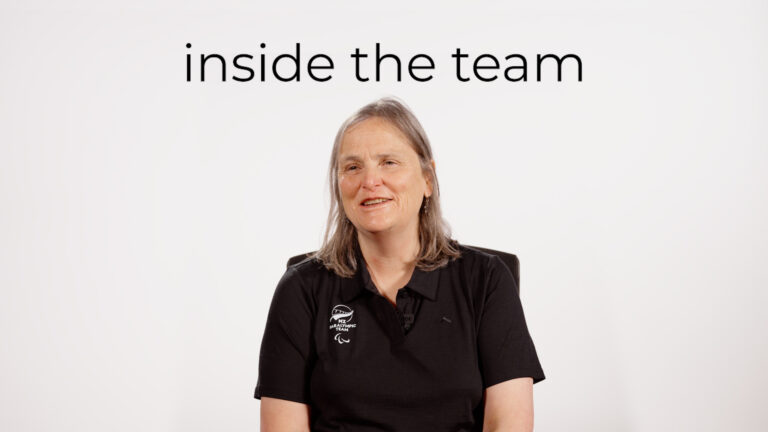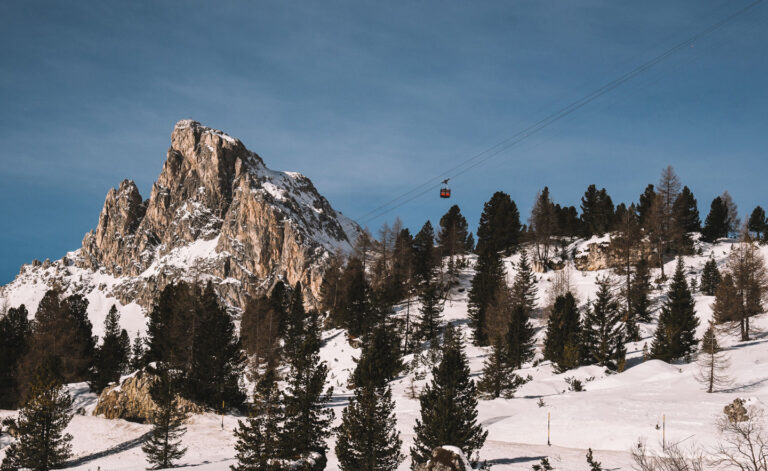When Para athlete Wojtek Czyz takes to the court at Paris 2024 to become the first Kiwi Para badminton player to compete at a Paralympic Games it really does not even tell half the story. We shine a light on his remarkable life journey, which could easily fill several books.
“Don’t think of what you were, but of what you are and of what you aspire to be” is the personal motto of Wojtek Czyz, and boy is it certainly something this remarkable human being has truly lived up to.
A former non-disabled footballer who was good enough to sign a professional contract, he later starred in the sport of Para athletics snaring seven Paralympic medals for Germany before starting a major humanitarian project to providing prosthetics for those in need.
It was sailing around the world as part of that venture, he landed in New Zealand five years ago and never left. Now fully focused on his latest challenge as a Paralympic Games-bound Para badminton player, he admits today he approaches sport from a slightly different perspective.
“As a Para athlete I was always the one people were chasing,” he admits. “I know the pressure of everyone wanting to beat you as the top seed. But I go into Paris as the hunter, and I enjoy that feeling of seeing what is possible.”
Born in Poland, Wojtek relocated with his family to Kaiserslautern in south west Germany at the age of eight and he quickly developed a “big dream” of becoming a professional footballer.
Impressing as firstly a striker and later a high-energy box-to-box midfielder, at the age of 21 he achieved his long-held ambition when signing professional contract with Fortuna Cologne, who were playing in the third tier of German football at that time. However, in his final game before taking up his pro-contract, his life was to suddenly lurch in a different direction.
“During that game, I chased a long ball and the goalkeeper jumped on my leg,” he says. “It was an intense injury. I need to be operated on within six hours, but it wasn’t until 12 hours after the accident, did I go in the operating theatre.”
One week later he underwent an above knee amputation. Yet surrounded by a hugely supportive team of family and friends he made a rapid mental adjustment to his changing circumstances. Within four to six weeks of the accident he found out about Para sports and readjusted his sights on becoming a Para athlete. Translating the same meticulous and professional approach he took to his football career within six months of taking up the sport he won German Para athletics titles in long jump and 100m. Within less than three years of his accident, Wojtek claimed three gold medals at the Athens 2004 Paralympic Games, winning the Men’s 100m T42, Men’s 200m T42 and Men’s Long Jump T42-44 titles.
Czyz went on to harvest a further four medals at the Beijing 2008 and London 2012 Paralympic Games as he carved out an outstanding career as a world-class Para athlete before stepping away from the sport reflecting with pride in his considerable accomplishments.
“Looking back in my time as Para athlete when I started out it was only the beginning of the professional era of Para sport,” he recalls. “Previously, it had been seen as a fun environment, but I was among that group to say ‘okay, it can still be fun, but I’m not sightseeing, I am there to be the best I can be and perform’. I was proud I played a part in that journey.”
Post his Para athletics career he wanted to make a difference, so he set up alongside his wife, Elena Brambilla, a former non-disabled high jump international from Italy, the project Sailing4Handicaps in which he would hand out prosthetics for free to transform lives. For four years he sailed the world helping many hundreds of people, particularly in Third World countries, before stopping off in New Zealand in 2019. Yet what he initially intended to be a relatively short stopover in the country turned out to be a much longer stay after Covid hit and his plans changed.
“We fell in love with this beautiful country,” explains Wojtek, who has an eight-year-old son, Paul. “I then started to explore the structure of disability sport in New Zealand and that’s when I saw some opportunities.
“I thought why not try something to prove to every disabled person in New Zealand that they can achieve? I didn’t want to go back to Para athletics, I instead thought I’d like to try something from scratch, so I thought why not try Para badminton?”
Wojtek had tried badminton casually in his youth but with his boat initially located in One Tree Point he contacted Aaron Spence from the Northland Badminton Association and so began his initial foray into Para badminton.
Within a week he reached out to Badminton NZ for an assessment and after being given encouragement on his future potential, so began the genesis of dream which three years later has led Wojtek to the cusp of history-making accomplishment at the Paralympic Games.
While the physical challenges of taking on a new sport held no fear, Wojtek acknowledges his greatest challenge has been shifting from the high-adrenaline world of sprinting into the different rhythms of Para badminton.
“As a 100m sprinter you want to feel that adrenaline and then, bang, go,” explains Wojtek, who has set up with his wife a manuka honey farm in Eureka in the Waikato.
“Badminton is very different. You have to be fast, but also hit the shuttlecock in a relaxed and loose way. I’m a very emotional person and working on the co-ordination of the sport is still one of the biggest challenges for me.”
Combining eight on court sessions a week with two weight sessions plus a cardio session every Saturday, Wojtek has gradually started reaping the rewards.
Winning the Men’s Singles SL3 Oceania title he earned a qualifying spot for New Zealand and later earned selection for the NZ Paralympic Team, where he makes history at Paris 2024 as the country’s first ever Para badminton representative at a Paralympic Games.
In recent months he has relocated from his Hamilton-base to Auckland with his coach, Marianne Loh, to finetune his final preparations for what will be his fourth Paralympic appearance.
Ranked 15th in the world in his classification he accepts he is an underdog in the French capital, but he is both excited and accepting of the challenges ahead at the Porte de la Chapelle Arena.
“Some of the more experienced players move less on the court than I do, which means I often have to do more work,” he explains. “That side of the sport does not bother me, but I know I can progress and reach a higher level.”
To learn more about Para badminton go here






























